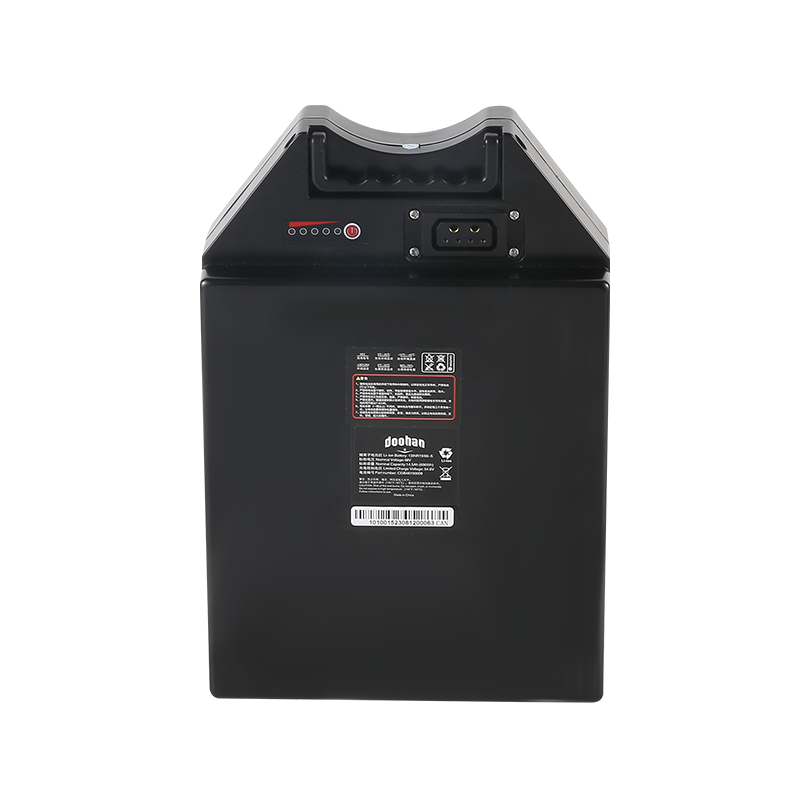Web Menu
Product Search
Exit Menu
How To Enhance The Safety And Durability Of Lithium Ion Polymer Batteries?
The Lithium Rechargeable Battery industry has undergone significant advancements, with Lithium Ion Polymer Batteries emerging as a prominent player in various applications, from portable electronics to electric vehicles. As the demand for high-performance energy storage solutions grows, ensuring the safety and durability of Lithium Ion Polymer Batteries becomes paramount.
Lithium Ion Polymer Batteries, a subset of lithium rechargeable batteries, have gained widespread adoption due to their unique characteristics. Unlike traditional lithium-ion batteries, Lithium Ion Polymer Batteries feature a solid electrolyte in a polymer matrix, offering flexibility in design and a higher energy density. However, to fully capitalize on their potential, addressing safety concerns and extending their lifespan are critical considerations.
1. Improved Electrolyte Composition:
The electrolyte is a crucial component influencing the safety and performance of Lithium Ion Polymer Batteries. Innovations in electrolyte composition play a pivotal role in reducing the risk of thermal runaway and enhancing overall safety. Researchers are exploring electrolyte additives and formulations that enhance the stability of the solid electrolyte interface (SEI) and mitigate issues associated with electrode-electrolyte interactions.
2. Advanced Battery Management Systems (BMS):
Implementing sophisticated Battery Management Systems is essential for monitoring and controlling various parameters within Lithium Ion Polymer Batteries. BMS helps prevent overcharging, over-discharging, and overheating, contributing significantly to safety and extending the battery's operational life. Intelligent BMS designs incorporate real-time monitoring, balancing, and temperature control to optimize battery performance.
3. Thermal Management Solutions:
Addressing heat dissipation is crucial for Lithium Ion Polymer Batteries, as excessive heat can accelerate degradation and compromise safety. Innovative thermal management solutions, such as phase-change materials and advanced cooling systems, help maintain optimal operating temperatures. These solutions not only enhance safety but also contribute to the durability of the battery by minimizing thermal stress.
4. Material Innovations for Electrodes:
Advancements in electrode materials contribute to the longevity and safety of Lithium Ion Polymer Batteries. Researchers are exploring materials with enhanced structural stability and improved conductivity to minimize capacity fade over charge-discharge cycles. Silicon-based anodes, for example, show promise in increasing energy density while maintaining structural integrity.
5. Robust Cell Design:
The physical design of Lithium Ion Polymer Batteries is a critical factor influencing safety and durability. Innovations in cell design focus on reinforcing the structural integrity of the battery, preventing internal short circuits, and improving overall mechanical robustness. Enhanced cell designs also facilitate better energy distribution within the battery, optimizing performance and lifespan.
6. Rigorous Quality Control Processes:
Implementing stringent quality control processes throughout the manufacturing chain is essential to ensure the reliability of Lithium Ion Polymer Batteries. From raw material sourcing to cell assembly and final product testing, a comprehensive quality control framework helps identify and mitigate potential defects, ensuring that only high-quality batteries reach the market.
7. Eco-Friendly Manufacturing Practices:
Sustainable and eco-friendly manufacturing practices are becoming increasingly important in the Lithium Rechargeable Battery industry. Adopting green manufacturing processes not only aligns with environmental goals but also enhances the overall quality and safety of Lithium Ion Polymer Batteries. From recycling initiatives to minimizing the use of hazardous materials, eco-friendly practices contribute to a more sustainable battery lifecycle.
As Lithium Ion Polymer Batteries continue to play a pivotal role in powering various devices and applications, industry stakeholders are committed to advancing safety and durability. Through continuous research, innovation, and the implementation of robust manufacturing practices, the Lithium Rechargeable Battery industry aims to provide consumers with high-performance, safe, and long-lasting energy storage solutions. Striking a balance between energy density, safety, and durability remains at the forefront of industry efforts to meet the evolving needs of a rapidly changing technological landscape.
-

+86-13049701086
-

Stonehuang@CGONEN.com
-

No.88, Huji Road, Taizhou Bay Binhai New Area, Jiaojiang District, Taizhou City, Zhejiang Province, China











